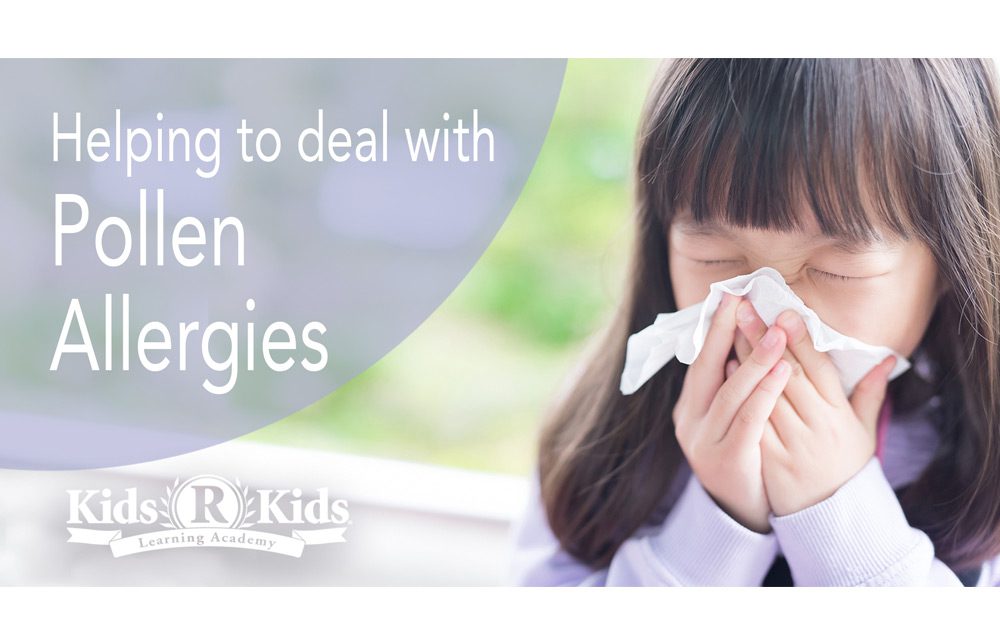As spring begins to bloom and temperatures rise, children get excited to finally be able to go outside again. And along with the joy of the warmth and flowers and outdoor activities comes a problem for some- pollen allergies.

Allergies can begin in early life, even as young as infants or can be onset at any time in a human’s life cycle. According to the Asthma and Allergy Foundation of America, about 40% of children in the United States have some form of allergy. They also report that “Many people with allergies often have more than one type of allergy. The most common indoor/outdoor allergy triggers are: tree, grass and weed pollen, mold spores, dust mites, cockroaches, and cat, dog and rodent dander.”
Of course, there are many kinds of allergies that people can have, as well as severity of allergies that can be anywhere from mildly inconvenient to life threatening; but for the purposes of this blog, we will focus on outdoor pollen allergies that mildly affect children. If your child has a serious allergic reaction to anything, take them to a doctor or emergency room as soon as possible or call 911.
An allergic reaction is the body’s attempt to protect the body from the irritant (allergen). Your body mistakes this foreign body as a threat and begins to create antibodies called immunoglobulin E (IgE), these then cause the body’s cells to release various chemicals in order to defend against the foreign irritant.
Symptoms of mild pollen allergies usually include:
- Sneezing
- Itchy nose and/or throat
- Coughing
- Stuffy nose
- Watery/runny eyes
Treatments for mild pollen allergies include:
Take your child to a doctor or allergist; where they will test for allergic reactions and after proper medical diagnosis;
- The doctor may prescribe either an over-the-counter medication or a medical prescription
- Administer the prescription as instructed by the doctor or your pharmacist
- Follow up with your doctor or allergist about any changes
As with any other medical issue, inform all caregivers (childcare staff, teachers, family members, parents of your child’s friends, etc.) of your child’s allergies, relating prescriptions, doses, and administration of these in the medications and emergency contacts.
Things you can do at home:
- Make sure your children wash their hands and/or bathe and wash their clothes after coming in from outside
- Dust/sweep away any pollen you find in the house, in cars, or other highly trafficked areas
- Make sure you children stay hydrated